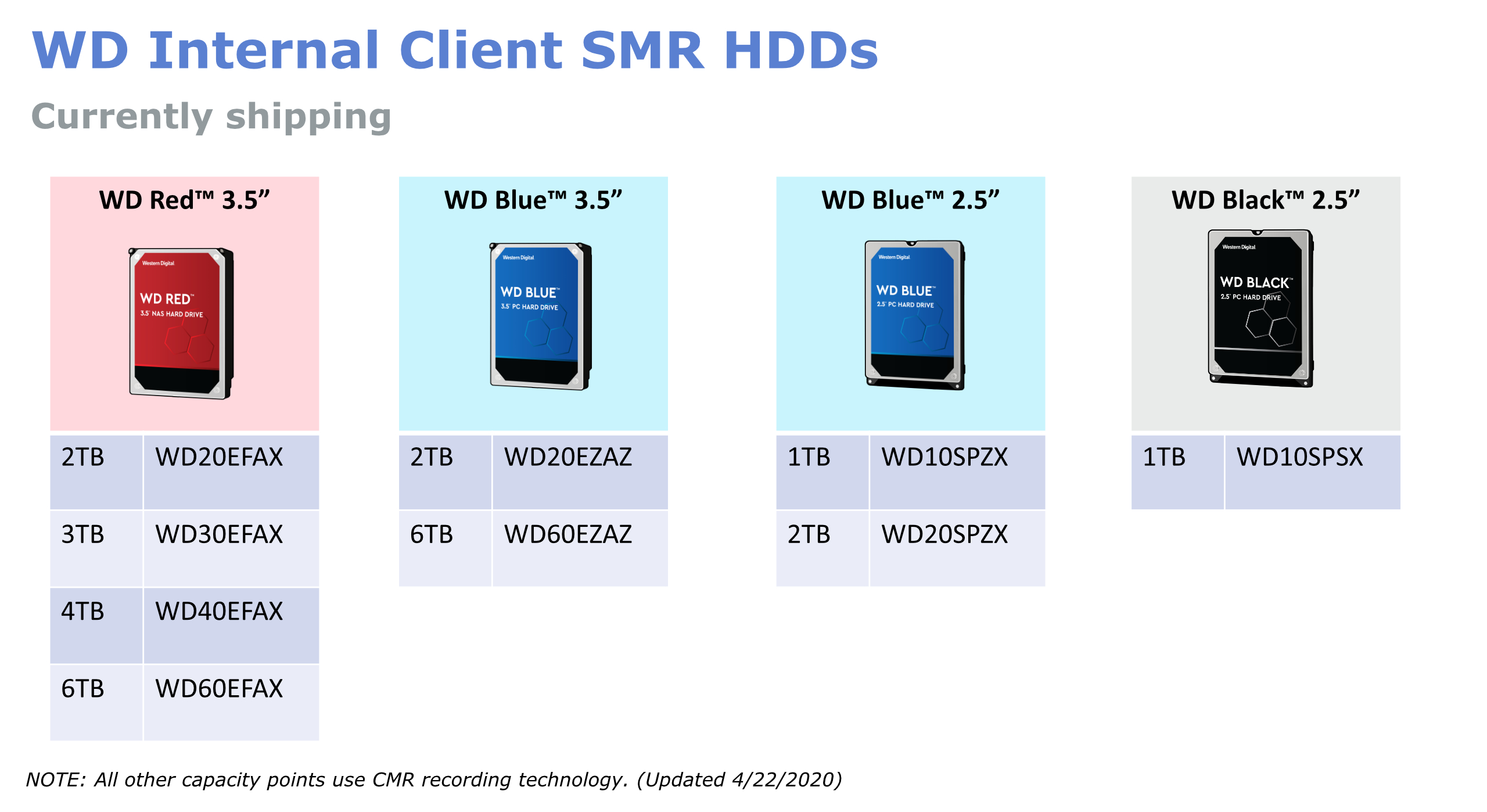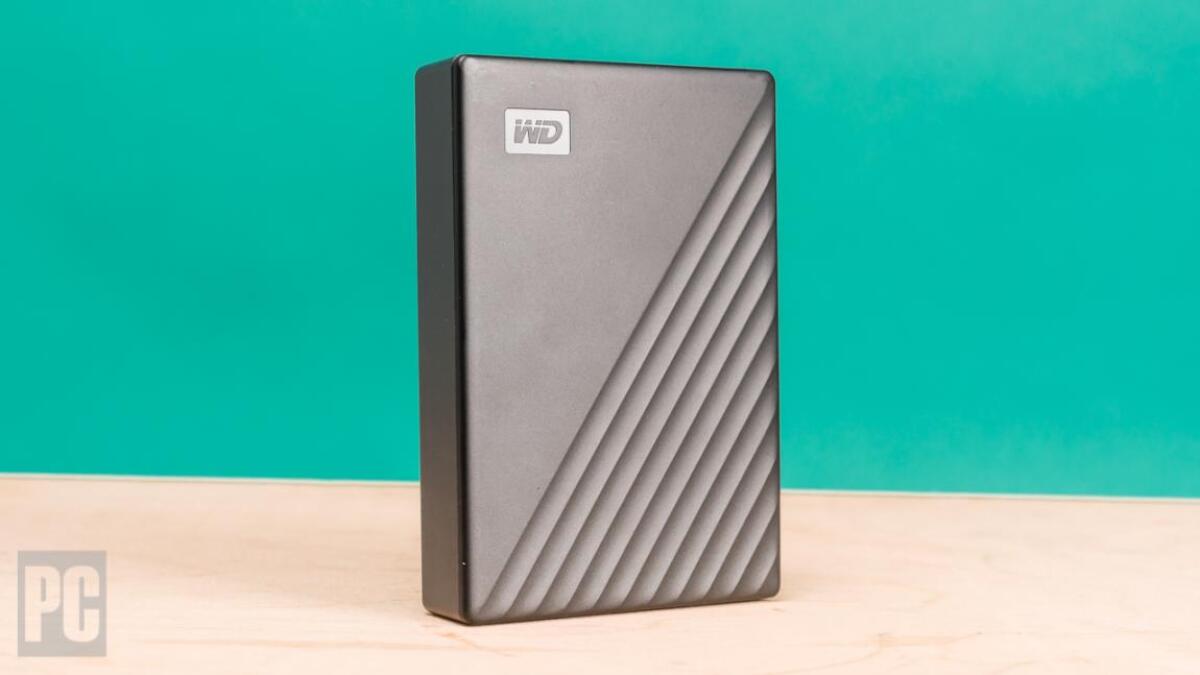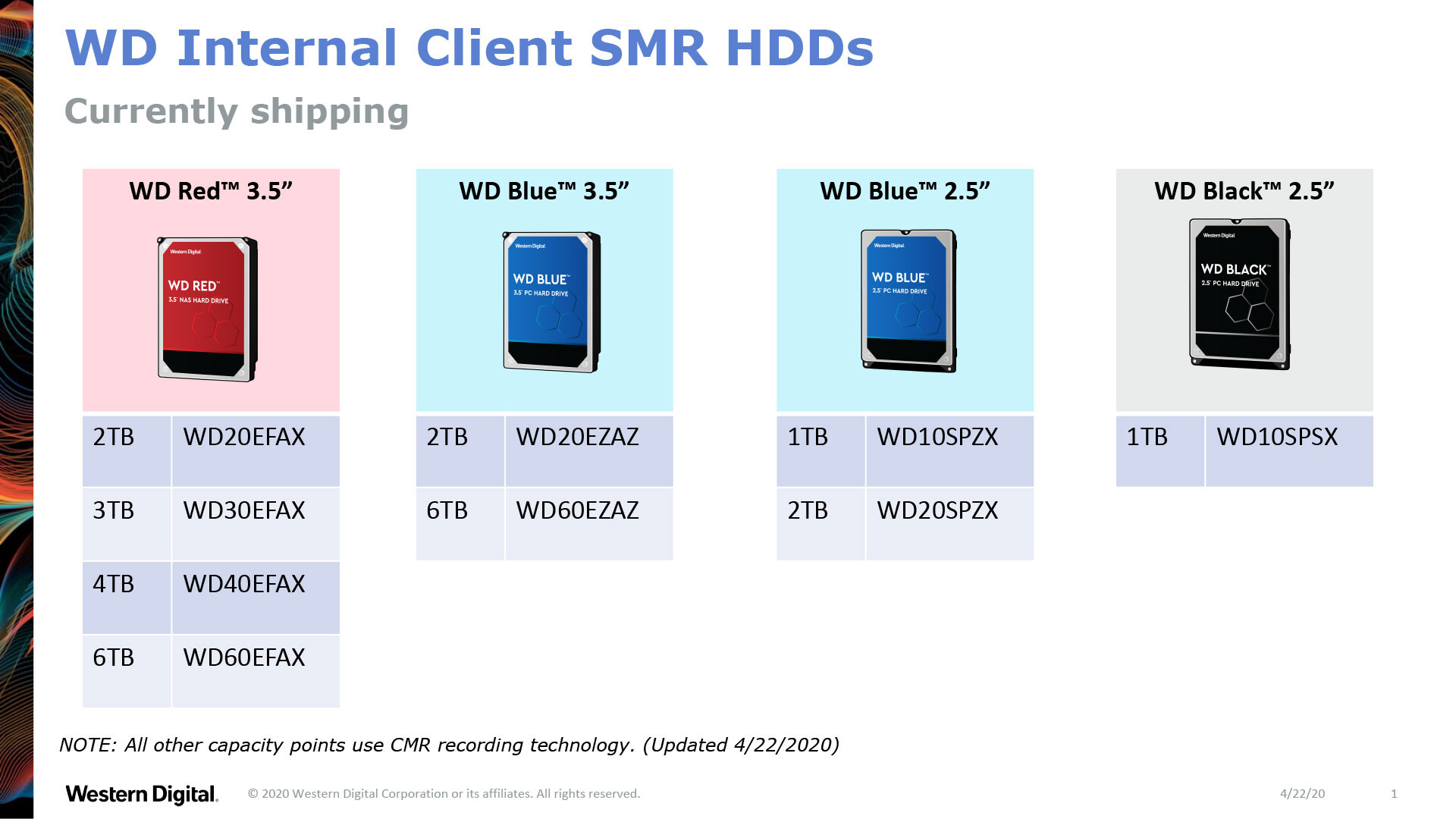- Joined
- Oct 9, 2007
- Messages
- 47,814 (7.40/day)
- Location
- Dublin, Ireland
| System Name | RBMK-1000 |
|---|---|
| Processor | AMD Ryzen 7 5700G |
| Motherboard | Gigabyte B550 AORUS Elite V2 |
| Cooling | DeepCool Gammax L240 V2 |
| Memory | 2x 16GB DDR4-3200 |
| Video Card(s) | Galax RTX 4070 Ti EX |
| Storage | Samsung 990 1TB |
| Display(s) | BenQ 1440p 60 Hz 27-inch |
| Case | Corsair Carbide 100R |
| Audio Device(s) | ASUS SupremeFX S1220A |
| Power Supply | Cooler Master MWE Gold 650W |
| Mouse | ASUS ROG Strix Impact |
| Keyboard | Gamdias Hermes E2 |
| Software | Windows 11 Pro |
Western Digital has been hit by a class-action lawsuit over alleged false advertising over some of its WD Red hard drives featuring undocumented DM-SMR (drive-managed shingled magnetic recording), a physical layer data writing technique that maximizes capacity at heavy costs of random write performance, that effectively render the drives unfit for RAID applications that are common with NAS setups. Trouble brewed for Western Digital in April, as a Blocks & Files report exposed presence of SMR on certain popular WD Red drives as an explanation as to why the drives couldn't be added to RAID volumes.
Western Digital initially tried to defend its position by explaining what DM-SMR is, that the standard WD Red has been tested on most SOHO NAS devices, that they're not meant for serious (> 8-drive) NAS setups; and pointing people to their pricier WD Red Pro, or enterprise-segment Ultrastar HDDs, leading to more community backlash. Days later, Western Digital finally came out with a list of its HDDs that use SMR. Bellevue Washington-based Hattis & Lukacs, class-action specialists, are leading the charge against Western Digital, and are inviting aggrieved U.S. residents to join the class.

View at TechPowerUp Main Site
Western Digital initially tried to defend its position by explaining what DM-SMR is, that the standard WD Red has been tested on most SOHO NAS devices, that they're not meant for serious (> 8-drive) NAS setups; and pointing people to their pricier WD Red Pro, or enterprise-segment Ultrastar HDDs, leading to more community backlash. Days later, Western Digital finally came out with a list of its HDDs that use SMR. Bellevue Washington-based Hattis & Lukacs, class-action specialists, are leading the charge against Western Digital, and are inviting aggrieved U.S. residents to join the class.

View at TechPowerUp Main Site












